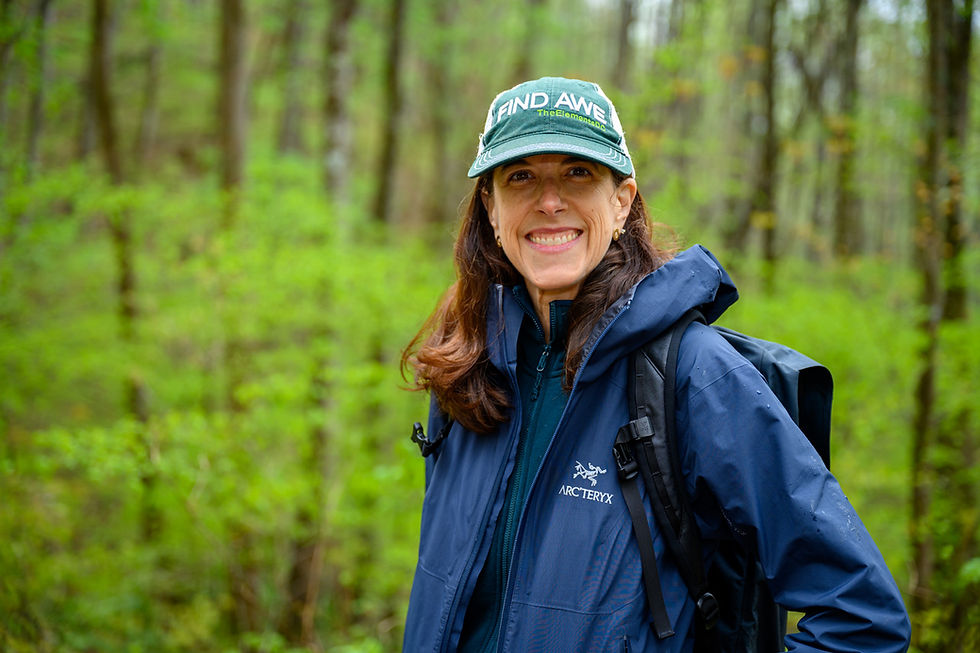Revisiting Aldo Leopold’s Land Ethic after the Trashing of Max Patch
- hikingresearch
- Sep 27, 2020
- 3 min read
“When we see land as a community to which we belong, we may begin to use it with love and respect.” Aldo Leopold

An American author, philosopher, scientist, ecologist, forester, conservationist, and environmentalist, Aldo Leopold described a land ethic as caring about people, land and strengthening the relationship between them in his book A Sand County Almanac.
He believed that a land ethic was a moral code of conduct that grows out of the relationships between people and the land. He expanded the concept of community beyond humans to include soils, waters, plants and animals. At the core of his belief was that direct contact with the natural world was critical in extending our ethics beyond our own self interest. He saw it as his mission to help others to develop an ethic of care that developed from a close personal relationship with the natural world.
I first studied the philosophy and writings of Leopold when I was working on my dissertation at NC State on the restorative benefits of wilderness solitude. I find myself coming back to his work often, but especially this past week after the trashing of Max Patch on the Appalachian Trail in North Carolina. This is not unique to Max Patch. Stories of misuse of public lands have been around for years, but have intensified during the pandemic, which has caused a surge of visitors to national parks and other natural areas, many of whom are experiencing nature for the first time.
It is easy to say what happened at Max Patch is due to people who did not know what they were doing. However, leaving tables, tents, sleeping bags, trash and human waste to desecrate one of the most beautiful places on the Appalachian Trail goes far beyond that. It is an inability to look beyond one’s own self interest. Apparently some people feel they have a right to experience the amazing public lands in our country, but no responsibility for how they leave it. This is not unique to public lands. Look at the amount of litter on road sides, even in national parks, or the level of incivility in all aspects of life.
It is also reflected in the social media “selfie” culture, which likely helped fuel the trampling of Max Patch. That combined with extensive marketing have made once serene destinations places where cars line a dirt road for over a mile on a weekend day, like what happened last week.
Leopold’s land ethic needs to be embraced by the communities that market these natural wonders to generate tourism, the authors and filmmakers who profit from focusing on the beauty of these places, and the outfitters who help people connect with the natural environment. More businesses and organizations that profit from being near amazing natural places such as Max Patch should be pitching in with funding, and time, to help protect them. It should not be the sole responsibility of trail club volunteers to fix the problems.
I am sure many trail guides and outfitters teach Leave No Trace ethics. On my forest therapy walks I emphasize that we now tend the land that our ancestors took care of, and it is our responsibility to ensure it’s well being. We all need to re-emphasize the importance of protecting the land.
We humans have a terrible track record of caring for the mountains. Much of the forests in the Appalachian Mountains were cut down in the early 1900’s causing erosion, poor water quality and leaving a landscape that was barren. We have cut off the tops of mountains to obtain coal, obliterating the quality of life for the communities nearby. The communities impacted extends beyond humans to include animals and all other types of living organisms that call a forest home.
Why do we repeatedly take nature for granted? Our health is directly linked to having a healthy natural environment. The relationship is symbiotic.
When will we collectively care enough to stop taking, and start giving? Pick up a copy of A Sand County Almanac, read it, and share it with a friend. I’m reading my copy again today.








Comments